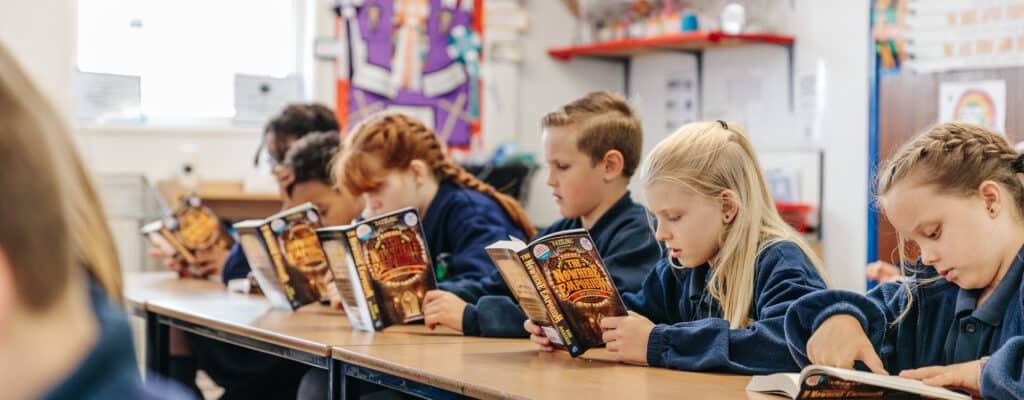Reading
In Early Years and Key Stage 1 we teach reading through a systematic synthetic phonics approach, using segmenting and blending as the prime approach to reading following the Little Wandle Letters and Sounds Revised scheme. Children progress through the Phonics phases so that by the end of Year 2 they are confident and fluent readers.
Reading
Children at Dundry are taught to read using phonically decodable books to support their reading journey. Once a child is secure and reading fluently at a Key Stage 1 level, they will then move onto reading books which are fine graded and pitched at the appropriate level for the child. To see how phonics are taught at Dundry, please see the phonics page here .
The Children are encouraged to read a variety of genres and sources of text with regular access to the class and school library. We use Reading Records to record your child’s reading journey both at school and at home.
Stories are regularly shared in class encouraging a love of reading and for stimulating children’s imaginations. Through reading sessions, children learn to develop fluency, expression and comprehension skills. They explore a range of texts, taking note of the author’s style of writing, vocabulary, use of punctuation, etc. and looking at the similarities and differences between different text types.
Throughout EYFS, KS1 and KS2 we support children’s reading in a variety of ways: Hearing children read in one-to-one sessions, small guided reading groups and whole class reading sessions.
In Key Stage Two children’s reading is focused around a core text. The whole class approach allows all children to access the high quality text and develop their skills of inference, deduction and comprehension.
The whole school have the opportunity to visit the school library on a regular basis and take books home.
READING AT HOME
Children are encouraged to read a minimum of four times across the week. Reading Records in KS1 are used as a communication tool between home and school. In KS2 Reading Records keep track of children’s reading at home.
At the end of each term children who have consistently read four times or more each week are entered into a raffle and the winner is able to buy a book to the value of £5.
We welcome parents, carers and volunteers to come into school to hear children read.
What will your child learn in Reading?
Dundry Reading Progression Document
RESOURCES TO SUPPORT READING
Questions to help your child during reading
Reading-comprehension-for-children-at-home
How can I help my child with reading at home if they are in Key Stage 1/EYFS?
It can be really tricky knowing how to support your child with reading, so Mrs. Cook has made a video to give you some ideas about how you can help. It is also good to read the same book with your child at least 3 or 4 times, this enables them to develop fluency when reading a book that has become more familiar.
Conifer 1:1 Reading with Mrs Cook
How can I help my child with reading at home if they are in Key Stage 2?
Even though our children in Key Stage 2 are older and can mostly read fluently, there are still ways in which we as adults can help them to improve their reading skills. In this video Mr. Wyatt shares some of the strategies used in school that will hopefully help you too at home.
Contact Us



